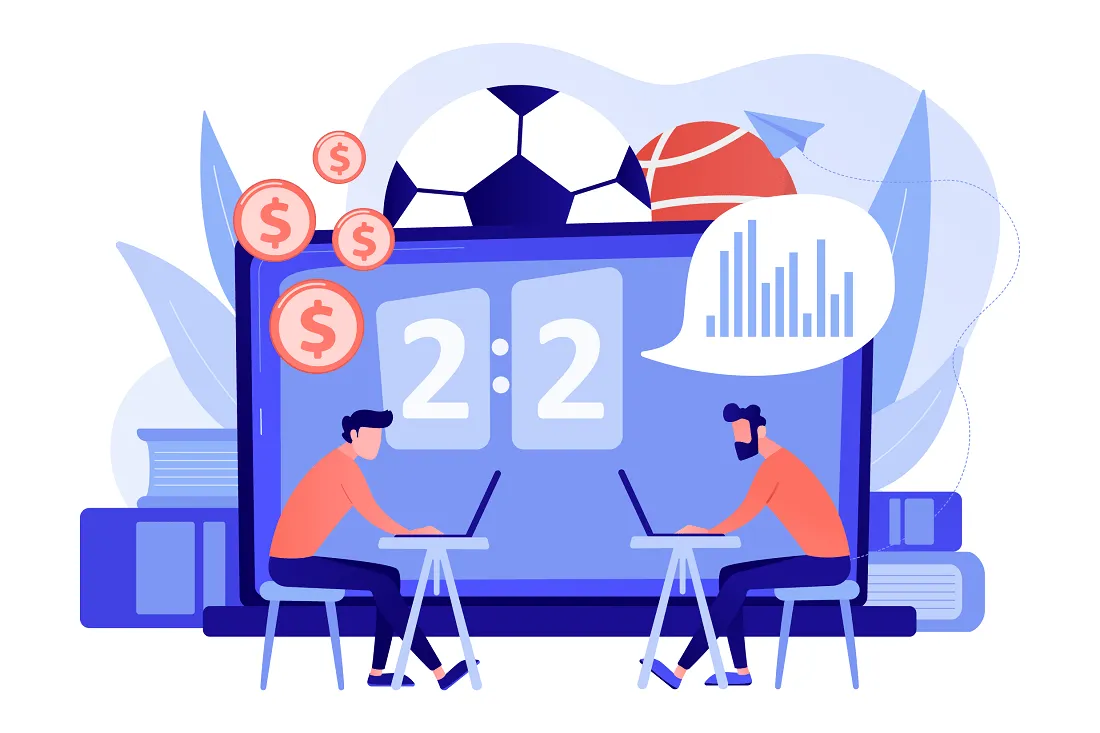Every football match is a unique event in which strategy, tactics and the physical preparation of the players come together. Analysing such matches requires careful consideration of all influencing factors, from the teams’ current form to the coaches’ tactics. How to analyse football matches is a key question for those who want to make predictions based on real data rather than guesswork. Modern technologies and methods make it possible to take into account a large number of parameters that influence the result and use them to achieve a high level of forecasting accuracy.
The predictions are based on a detailed analysis of statistics, an examination of the national teams’ behaviour on the pitch and an understanding of their strengths and weaknesses. An approach based on thorough analysis allows you to avoid mistakes and develop a strategy that takes all the details into account.

Basics of analysis: How to analyse football matches for predictions
Analysing football competitions is a complex and multi-step process that involves the collection, processing and interpretation of data. Successful forecasters use both quantitative and qualitative approaches to capture all the nuances of the game. These methods allow you to assess the strengths and weaknesses of the teams, understand their tactical characteristics and predict how these factors will affect the outcome of the match.
Every football match is made up of many small details: the performance of the national team, its defence, the fitness of the players and the external conditions – how do you analyse this? You have to look at every single parameter, for example: a strong attacking team with a good defence and a stable goalkeeper has a better chance of winning than an opponent who relies on one key player.
Influencing factors
A football match cannot be predicted on the basis of recent results alone, it must be analysed taking into account a combination of key factors:
- The current form of the teams. The national team’s recent matches provide information about their mood, their fitness and their willingness to compete. Winning streaks boost self-confidence, while defeats can demotivate even experienced athletes.
- The role of key players. The loss of an important striker or defender can significantly affect a tactical concept. The absence of a key player, for example, forces the coach to change the game, which often reduces the effectiveness of the entire team.
- The influence of the home pitch. Teams playing in their own stadium are more likely to win because they are supported by the fans, the conditions are familiar and they do not have to travel long distances.
- Tactical preparation. The coach’s strategy, choice of game plan and ability to adapt to the opponent will determine the final result.
How to use statistics to analyse football matches
Statistics provide objective data that allow conclusions to be drawn about the chances of teams. The most important parameters that should be taken into account are
- Number of goals per game. A high performance of the national team shows its offensive potential. For example, a team that scores an average of 2 goals per game has a high chance of success.
- Passing accuracy. Teams with a high percentage of accurate passes control the tempo of the game, which is important against opponents with a strong defence.
- Number of shots on goal. This indicator shows a team’s attacking strategy and its ability to create chances.
Using these indicators, you can recognise patterns that are repeated from match to match and make predictions based on real data.
How to give football tips: Strategies and tips
 Creating a forecast starts with analysing the data, interpreting it and looking for patterns. Only by analysing all the parameters of the game in detail is it possible to draw a clear picture of the upcoming match.
Creating a forecast starts with analysing the data, interpreting it and looking for patterns. Only by analysing all the parameters of the game in detail is it possible to draw a clear picture of the upcoming match.
The first step is to collect data on the teams. This includes analysing the squads, injuries and disqualifications. The absence of the main striker, for example, reduces the attacking potential, especially if the substitutes do not have similar skills.
The second phase is to analyse past matches. The results of previous matches between teams provide information about their abilities. Some national teams have been stronger against certain opponents in the past, which can make a difference.
In the third phase, external factors are assessed. For example, the venue and weather conditions. Playing on an artificial pitch or in rainy weather requires extra effort from the players.
The final phase is the forecast based on analyses. This involves comparing current data with historical results to determine the most likely outcome.
The influence of players and coaches on the result: How to comprehensively analyse football matches
Each player contributes to the outcome of the match. The evaluation of his role is based on his current form, his statistical performance and his influence on the team. For example, a striker with a high number of goals in a season becomes a decisive factor in attack, while a defender with good defensive actions strengthens the defence.
Individual performance of the athlete:
- Successful actions in defence. Interceptions, blocking and precise rebounds help the team to keep the goal.
- Effective assists. A high assist rate indicates a player’s ability to create scoring chances.
- Number of shots on goal. This parameter reflects the player’s activity in attack.
Coaches’ influence on the match result
The coaches develop the strategy and make tactical changes. The flexibility in decision-making allows the team to adapt to different situations. Example: A coach who has been able to change tactics in response to the opponent’s actions is often one step ahead, which leads to the national team winning even in difficult matches.

Conclusion
 The ability to analyse football matches and make good predictions is an important skill that requires attention to detail and the ability to work with data. Applying an analytical approach helps to understand the strengths and weaknesses of teams, take into account the influence of external factors and avoid subjectivity. Only a comprehensive methodology that combines statistical analysis and understanding of the game guarantees long-term success.
The ability to analyse football matches and make good predictions is an important skill that requires attention to detail and the ability to work with data. Applying an analytical approach helps to understand the strengths and weaknesses of teams, take into account the influence of external factors and avoid subjectivity. Only a comprehensive methodology that combines statistical analysis and understanding of the game guarantees long-term success.
 en
en  de
de  ar
ar  es
es  nl
nl  hi
hi  fr
fr  it
it  pt
pt  el
el 









